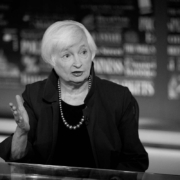Q3 Growth, Inflation Drop, Election Impact
The U.S. economy has shown unexpected strength in the third quarter of 2024, surprising many analysts and demonstrating resilience in the face of challenges. We’re seeing the U.S. economy thrive, with impressive growth numbers and a decline in inflation. As we approach an election season that will undoubtedly hinge on economic performance, it’s important for us all to understand the impacts of these recent developments and what they may mean for both everyday Americans and long-term economic stability.
Economic Growth in Q3: What’s Behind the Numbers?
Q3 2024 marks a solid economic growth rate of 2.8%, slightly slowing from Q2’s 3.0% but still outperforming earlier recessionary forecasts. This growth rate is driven by several factors that underscore consumer resilience and measured government policy.
- Strong Consumer Spending
With personal consumption expenditures growing by 3.7%, consumer spending continues to be a cornerstone of economic expansion. This strength points to rising confidence and sustained purchasing power across various sectors. For example, the service industry saw a notable uptick, demonstrating that Americans are still willing to invest in experiences despite lingering inflation concerns. - Federal Expenditures and Business Investment
Increased government spending, particularly on defense and infrastructure, helped support GDP growth. Business investment in equipment, while tempered by borrowing costs, has continued to expand, especially in sectors related to technology and innovation. This trend shows a commitment by firms to invest in assets that will enhance productivity and competitiveness. - Residential Challenges
While residential investment has seen obstacles from higher mortgage rates, stability in the commercial real estate sector has balanced this trend. Real estate, particularly in high-demand urban areas, remains a nuanced market, requiring investors to assess opportunities carefully.
Inflation Eases: A Win for Consumers and Policy Goals
Inflation has shown a steady decline, with the Personal Consumption Expenditures (PCE) price index nearing the Federal Reserve’s 2% target. This development is a major factor in enhancing consumer confidence and indicates potential policy shifts on the horizon.
How Does the Inflation Drop Benefit the Economy?
- Purchasing Power Stability
Eased inflation bolsters the purchasing power of everyday Americans, supporting the strength in consumer spending observed this quarter. Lower inflation also creates a more favorable environment for investors, particularly those in fixed-income securities and bonds. - Federal Reserve Policy Adjustments
The Fed’s interest rate policy may adapt if inflation remains controlled, which could lead to a more accommodating stance by 2025. This shift would provide businesses with increased borrowing options and further stimulate economic growth.
Pre-Election Economic Climate: What’s at Stake?
With the 2024 presidential election on the horizon, the economic outlook is likely to influence both policy and public opinion. The robust GDP growth and low inflation could impact the political landscape in meaningful ways.
- Voter Sentiment
Economic performance traditionally plays a pivotal role in election cycles, and this year will be no exception. Candidates will likely focus on sustaining growth, managing inflation, and ensuring job security, addressing the concerns of both urban and rural voters. - Corporate Confidence and Investment Decisions
Businesses generally benefit from a stable, growing economy, which encourages investment and expansion. CEOs and corporate leaders will be watching the election closely, seeking clarity on future tax policies, regulatory changes, and international trade relations.
Key Takeaways for Financial Professionals and Investors
For professionals and investors navigating the current economic landscape, the Q3 2024 report provides actionable insights:
- Keep a Balanced Approach to Investment
With inflation showing signs of stability, conservative investments in bonds and fixed-income securities may offer favorable returns. Additionally, sectors like technology and infrastructure are positioned for sustained growth. - Prepare for Potential Interest Rate Adjustments
Financial strategists should be ready for possible interest rate reductions if inflation continues to decrease. Such a scenario could make borrowing more attractive, benefiting both consumers and businesses. - Stay Informed on Election Implications
The upcoming election could bring shifts in tax policy and regulatory environments, making it essential for investors to monitor policy updates that could affect various sectors.
Final Thoughts
In this period of unexpected economic growth and easing inflation, the U.S. economy has shown resilience that can offer some optimism amid uncertain global conditions. As we look forward, the balance between sustainable growth and prudent fiscal management will remain critical.
If you found this analysis helpful, please consider sharing it on social media to support our work. And if you’re in a corporate finance role and interested in more insights, visit The Schlott Company Blog for resources tailored to today’s professionals.









Leave a Reply
Want to join the discussion?Feel free to contribute!